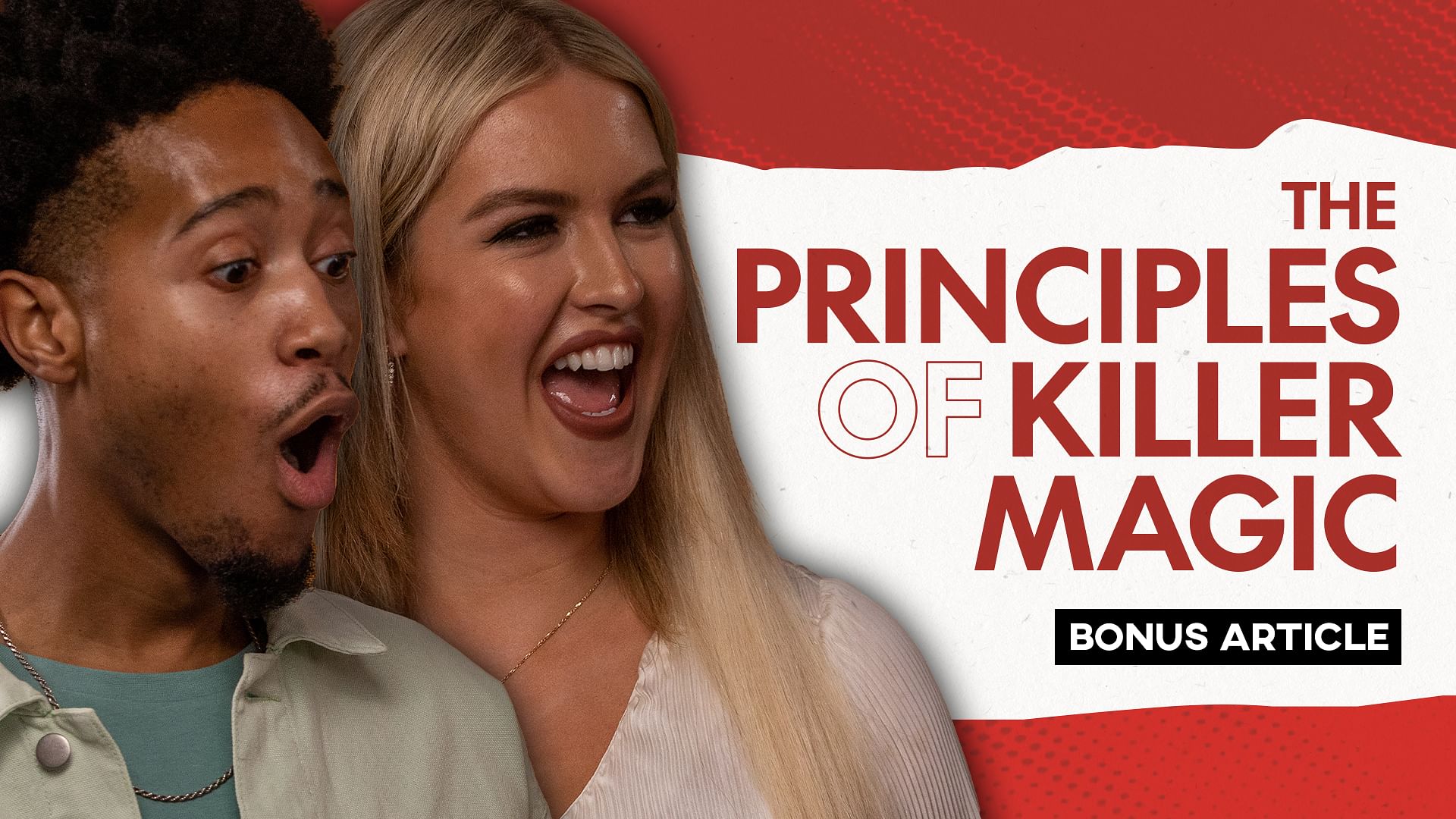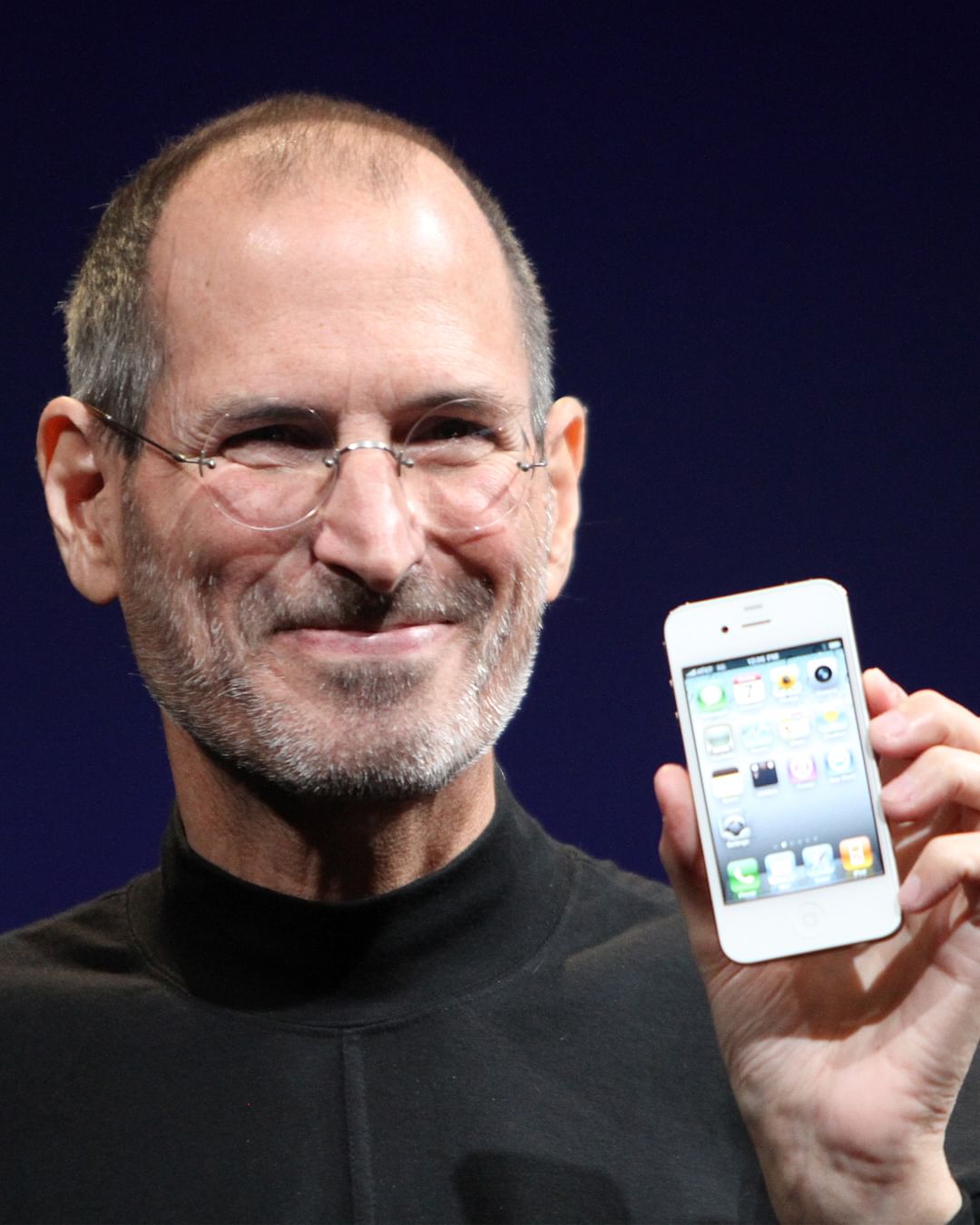Principles of Killer Magic - Bonus Edition
By Mitch Praver - Wednesday, February 5, 2025

Welcome to a bonus edition of The Principles of Killer Magic. In the first three articles of this special series, we explored 10 ways that acting like a successful business leader can make you a better magician. However, some of you may be realizing that, when it comes to actually applying these concepts, it's easier said than done. This is often because there are many shared human tendencies that can tend to hold us back. Today, we take a look at those tendencies are and how to work past them.
Read Part 1
Read Part 2
Read Part 3
As a reminder, my name is Mitch Praver. I’ve been a successful C-Level executive at some of the most well-known companies in the world, including National Geographic, NPR and Discovery Channel. I also perform as The CEO Magician, a role in which I use my passion for magic to help businesses trigger innovation, think differently, challenge the status quo, and inspire the possible.
I’m glad you’ve been enjoying this series and am excited for you to join me on this final exploration of how to achieve your fullest potential as a magician.
The Tendency to Stop Thinking Too Soon
Steve Jobs would say, “When you start looking at a problem…and it seems really simple…then you don’t really understand the complexity of the problem. That’s where most people stop thinking”.

There’s no better proof of this than the telephone industry. In just the past 50 years, we’ve evolved from rotary phones to touch-tone to cordless to smartphones. Television has also transformed from the Big Three Networks to cable TV, pay-per-view, and now digital streaming services. Not to mention, the TVs themselves have evolved drastically in just the past 20 years alone.
As magicians, continuing to ask questions like Steve Jobs did is the key to making the impossible seem possible. We no longer live in a world where you can pretend to look into a crystal ball and see the future like Alexander: The Man Who Knows. But we can do things like covertly ascertain phone passwords or use Siri to predict a card at any number.
These miracles are all possible because of magicians and mentalists who are always thinking, evolving methods and identifying questions that unlock doors to new opportunities
The Tendency to Resist Dynamic Market Change
I believe it was Charles Darwin who once said, “It’s not the strongest species that survive, nor the most intelligent, but the ones most responsive to change.”
In magic, just as in business, there are tendencies (either out of fear or laziness) to simply blurt out: “well, that’s the way it has always been” or “everybody knows you can’t do that” or “if it ain’t broke, don’t fix it”. These phrases—which are often spouted by the same people who can’t grasp why their magic club attendance is declining—are a roadblock for embracing change or achieving success. As magicians, we should never want to accept the status quo. It’s our job to show that the “impossible” can be “possible”.

Remember that Kodak once owned the photography market; but their failure to embrace digital photography ultimately led to the decline of their ubiquitous dominance. As noted in Part 2 of this series, Blockbuster also famously could have bought Netflix, but they assumed the by-mail/on-demand model was a fad. Yahoo once had a chance to buy Google for $1 million, but figured they already had a safe lead in the search engine landscape (Google is worth roughly $2.5 trillion at the time of writing this, by the way).
What do these stories have in common? A refusal to embrace change.
In magic, there are magicians that have been performing the same act for 30 years. Think about how much you’ve changed as a person, and how much the world has changed, in the last 10 years or even 5 years. If you haven’t changed your act in 30 years, you’re simply admitting to your audience that you’re ok with something that is “good enough”.
There are also some magicians who refuse to experiment with new digital technologies or even simple card gaffs. These “purists”, as they call themselves, tend to forget the most important part of magic: the audience experience. If a piece of tech or card gimmick can help to more effectively astound and entertain an audience, isn’t it worth a try?
Magic is a fun and exciting medium that encourages experimentation. Go out, take risks and be a changemaker!
The Tendency to Not Look for Blind Spots
In business, blind spots to changing customer needs and emerging market patterns usually occur when companies direct their focus inward on corporate issues rather than externally on the evolving needs of customers and partners. Many companies also suffer from a psychological bias in which they believe what they want to believe. They view objective data through a subjective lens, one in which will support current strategies and enhance job security.
There are many businesses that have deceived the public into thinking they were more successful than they were. These were masterclasses in corporate deception—until they weren't. This internal and external deception can be best described as "corporate misdirection" and some great examples include:
- Theranos: Elizabeth Holmes banned employees from seeing the labs, hid certain areas, and diverted the attention of employees away from the fact that the company’s technology was bogus.
- Phillip Morris: Famously did everything they could to shift customer attention away from the horrible truth about cigarettes. The company knew all the negative health consequences, yet they still marketed the cool factor and made grandiose lifestyle claims about the benefits of cigarette use.
- Enron: This was a masterclass in creating the illusion of a successful company. In reality, Enron was a was a sinking ship of financial lies that was $30 billion in debt. Their entire business model was a giant sham of corporate hide-and-seek.
- WeWork: These corporate magicians purposefully maintained a rapid pace of business that ensured all employees were too busy to ever notice the ugly financial truths bubbling beneath the surface.
In our world of magic, the psychology of magic is a relatively new field. We’re just now starting to fully understand the psychological framework behind how our eyes, ears, and even memories are fooled. You can, and should, use this to your advantage.

Think about how often an audience will misremember what actually happened during your performance. Typically, they recall it as something way more magical and amazing than it actually was. There are definitely opportunities to craft your routines in ways that further push them into these blind spots.
While blind spots in business can lead to lost jobs, in magic, they can be the key to your audience experiencing what they believe to be a genuine miracle.
The Tendency to Let Setbacks Win
The most successful businesses do not let setbacks keep them down or prevent them from believing better things can be achieved. Miscalculations and mishaps will happen to everyone. What’s most important is that you find a way to pivot to a triumphant conclusion.
Many successful products actually started as failures that were repurposed to solve a different consumer need and/or fit a different market.

Post-it Notes, for example, were developed by a scientist at 3M who was trying to develop a super-strong adhesive. He instead accidentally invented a “low-tack” adhesive that could stick to surfaces and also be removed easily without leaving residue. This felt like a complete failure until a few years later when it was used to make removable bookmarks that eventually became Sticky Notes.
Bubble Wrap was also originally created as textured wallpaper. Unshockingly, it was a massive flop in the world of home decor. Luckily, its inventors quickly realized its potential as packaging material, and it is now a ubiquitous tool for protecting fragile items.
Put simply, it is never too late. The opportunity you missed may have been a blessing. Your idea may have been ahead of its time or just not a fit for the market you’re currently operating in. Sometimes a miss on the first attempt can be a homerun on the second one.
What’s most important is that you’re not afraid to try things. If it feels right, give it a go. I can’t promise that it will always be an instant success. But the most prosperous businesses, and magicians, are those who keep pushing forward until they find the winning formula.
Well that’s it for this series on the Principles of Killer Magic. Thank you so much for joining me on this adventure. I look forward to seeing you on the next one.
Until then, feel free to keep in touch with me via my website theceomagician.com.
Back to blog homepage
Similar posts on the blog: